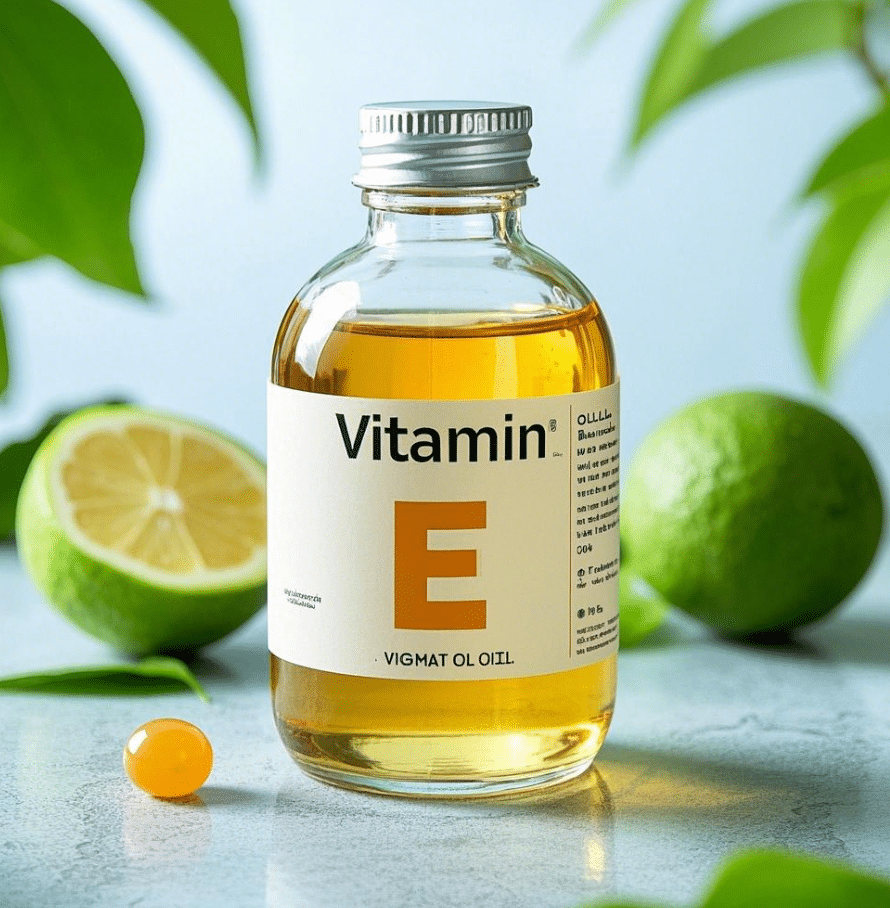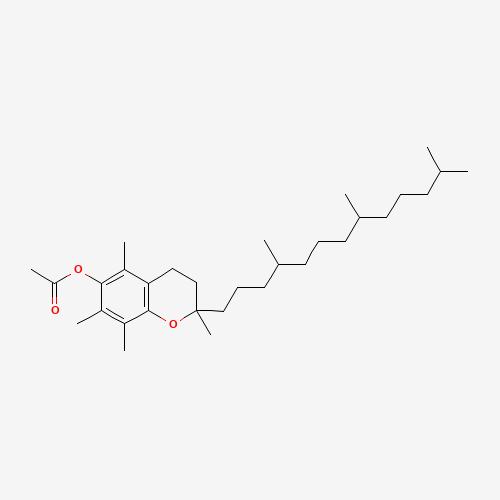
Vitamin E manufacturer
Vitamin E is a fat-soluble vitamin and a powerful antioxidant that plays a crucial role in protecting cells from damage caused by free radicals. Gensei is a leading natural Vitamin E manufacturer, operating a state-of-the-art Vitamin E factory in China. We specialize in providing high-quality Vitamin E powder bulk, ensuring purity and potency for your diverse product needs. Our commitment as a Vitamin E manufacturer means we deliver reliable, naturally sourced Vitamin E that meets stringent international standards, making us your ideal partner for antioxidant solutions.
Please note: We are a wholesale supplier and have minimum order quantities.
Have questions about this product? Our team is here to help. For inquiries about multiple ingredients, please use the Contact Us option and include the list of ingredients in your message.
- Vitamin E CAS No.:
- d-alpha-Tocopherol (Natural Vitamin E): 59-02-9
- dl-alpha-Tocopherol (Synthetic Vitamin E): 10191-41-0
- d-alpha-Tocopheryl Acetate (Natural Vitamin E Acetate): 58-95-7
- dl-alpha-Tocopheryl Acetate (Synthetic Vitamin E Acetate): 7695-91-2
- Chemical Name:
- For the most common form: alpha-Tocopherol or alpha-Tocopheryl Acetate
- Synonyms:
- Tocopherol (general term)
- Alpha-Tocopherol
- Tocopheryl Acetate
- DL-alpha-Tocopherol (for synthetic)
- D-alpha-Tocopherol (for natural)
- CB Number: CB1247669 (for d-alpha-Tocopherol)
- Molecular Formula: C29H50O2 (for alpha-Tocopherol)
- Molecular Weight: 430.71 g/mol (for alpha-Tocopherol)
- MDL Number: MFCD00003004 (for d-alpha-Tocopherol)

Vitamin E manufacturing process
The manufacturing process for natural Vitamin E involves extraction and purification from vegetable oils, while synthetic Vitamin E is produced through chemical synthesis.
Natural Vitamin E (d-alpha-Tocopherol) Extraction Process
(e.g., Soybean Oil, Rapeseed Oil, Sunflower Oil)
(Hydrolyzing triglycerides to release free tocopherols and other unsaponifiables)
(Separating tocopherols from the oil/saponified mixture, often using solvent extraction)
(Evaporating solvent to concentrate the tocopherol-rich fraction)
(Multiple steps like molecular distillation, chromatography, or crystallization to isolate d-alpha-Tocopherol and remove impurities)
(Converting d-alpha-Tocopherol to d-alpha-Tocopheryl Acetate or Succinate for stability)
(Drying into powder form or formulating into oil/liquid form)
(Testing for purity, potency, isomer content, heavy metals, contaminants)
(Pure Natural Vitamin E (e.g., d-alpha-Tocopheryl Acetate Powder) is packaged)
The specific steps and technologies may vary significantly between manufacturers, especially between natural and synthetic production methods.
Why Choose Gensei as Your Vitamin E Supplier?
Choosing Gensei as your Vitamin E manufacturer means partnering with a leader in natural antioxidants. Our advanced Vitamin E factory in China consistently produces high-quality natural Vitamin E, including Vitamin E powder bulk. We leverage sustainable sourcing and innovative extraction methods to ensure superior purity and potency.
Gensei’s stringent quality control and comprehensive testing guarantee that every batch of Vitamin E meets global standards. We are a reliable Vitamin E manufacturer committed to efficient logistics and excellent customer support, making us your trusted partner for all your Vitamin E needs.
Characteristics of Vitamin E:
- Powerful Antioxidant: Protects cells from oxidative damage caused by free radicals.
- Fat-Soluble: Essential for absorption with dietary fats.
- Various Forms: Available as natural (d-alpha-tocopherol) and synthetic (dl-alpha-tocopherol) forms, and their esters (e.g., acetate, succinate) for enhanced stability.
- Stability: Esterified forms (like acetate) are more stable against oxidation, light, and heat, making them ideal for incorporation into products.
- Purity & Potency: High-quality Vitamin E is purified to ensure a high concentration of active tocopherols.
Applications of Vitamin E:
- Dietary Supplements: Widely used in capsules, softgels, and multivitamin formulas for general health, antioxidant support, and cardiovascular health.
- Cosmetics & Personal Care: Incorporated into creams, lotions, serums, and hair care products for its antioxidant properties, helping to protect skin from environmental damage and promote skin health.
- Food & Beverage Industry: Used as a natural antioxidant to preserve food products by preventing rancidity and extending shelf life in oils, fats, and fortified foods.
- Animal Feed: Added to animal feed as a nutritional supplement and antioxidant to support animal health and product quality (e.g., meat and egg quality).
Our State-of-the-Art Manufacturing Facilities
Explore our modern facilities equipped with advanced technology to ensure the highest quality in the production of your vitamins, herbal extracts, minerals, and amino acids.











FAQs
Vitamin E is a group of fat-soluble compounds with distinct antioxidant properties. The most common and biologically active form is alpha-tocopherol. It helps protect cells from damage caused by free radicals, which are unstable molecules that can harm the body.
Vitamin E is well-known for its powerful antioxidant properties, protecting cells from oxidative stress. It supports immune function, promotes skin health, aids in eye health, and may contribute to cardiovascular well-being.
Natural Vitamin E (d-alpha-tocopherol) is derived from plant sources and has a higher biological activity than synthetic Vitamin E (dl-alpha-tocopherol). Synthetic Vitamin E is a racemic mixture, meaning it contains both active and inactive forms of tocopherol, while natural Vitamin E contains only the biologically active d-alpha isomer.
Natural Vitamin E is typically extracted from vegetable oils such as soybean oil, corn oil, sunflower oil, and rapeseed (canola) oil. Synthetic Vitamin E is produced chemically.
Yes, Vitamin E is widely used in cosmetics and personal care products due to its antioxidant properties, which help to protect skin from environmental damage, moisturize, and support skin health.
Vitamin E powder bulk refers to large quantities of Vitamin E in a powdered form, typically used as an ingredient by manufacturers of dietary supplements, food products, cosmetics, and animal feed. It's often formulated for stability, such as Vitamin E Acetate.
Pure Vitamin E (tocopherol) is sensitive to light, air, and heat. For better stability in products, it is often converted into an ester form, such as tocopheryl acetate or succinate, which are more resistant to degradation.
Common forms include d-alpha-tocopherol (natural), dl-alpha-tocopherol (synthetic), and their acetate or succinate esters (e.g., d-alpha-tocopheryl acetate, dl-alpha-tocopheryl acetate). Mixed tocopherols, containing alpha, beta, gamma, and delta tocopherols, are also available.
Vitamin E is generally safe when consumed at recommended dosages. High doses, however, can lead to side effects such as nausea, diarrhea, fatigue, and increased risk of bleeding, especially for individuals on anticoagulant medications.
Vitamin E, especially in its pure form, should be stored in a cool, dark place, away from direct sunlight, heat, and air, preferably in an airtight container to prevent oxidation. Ester forms are more stable.

